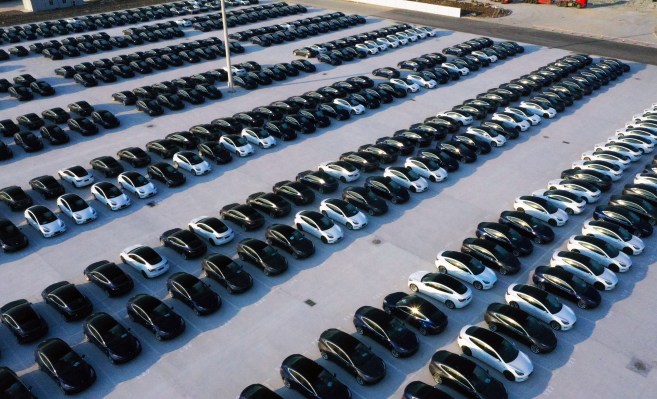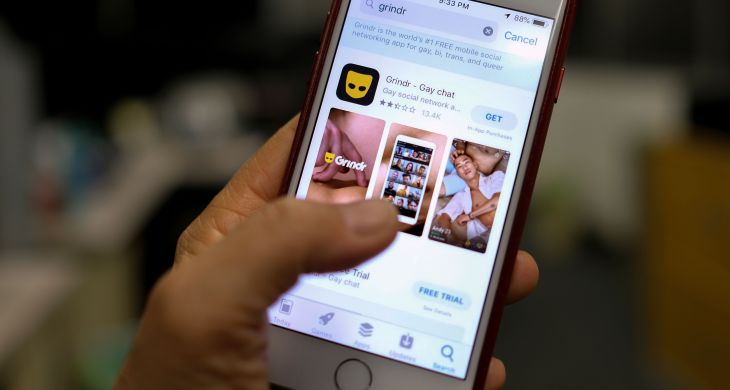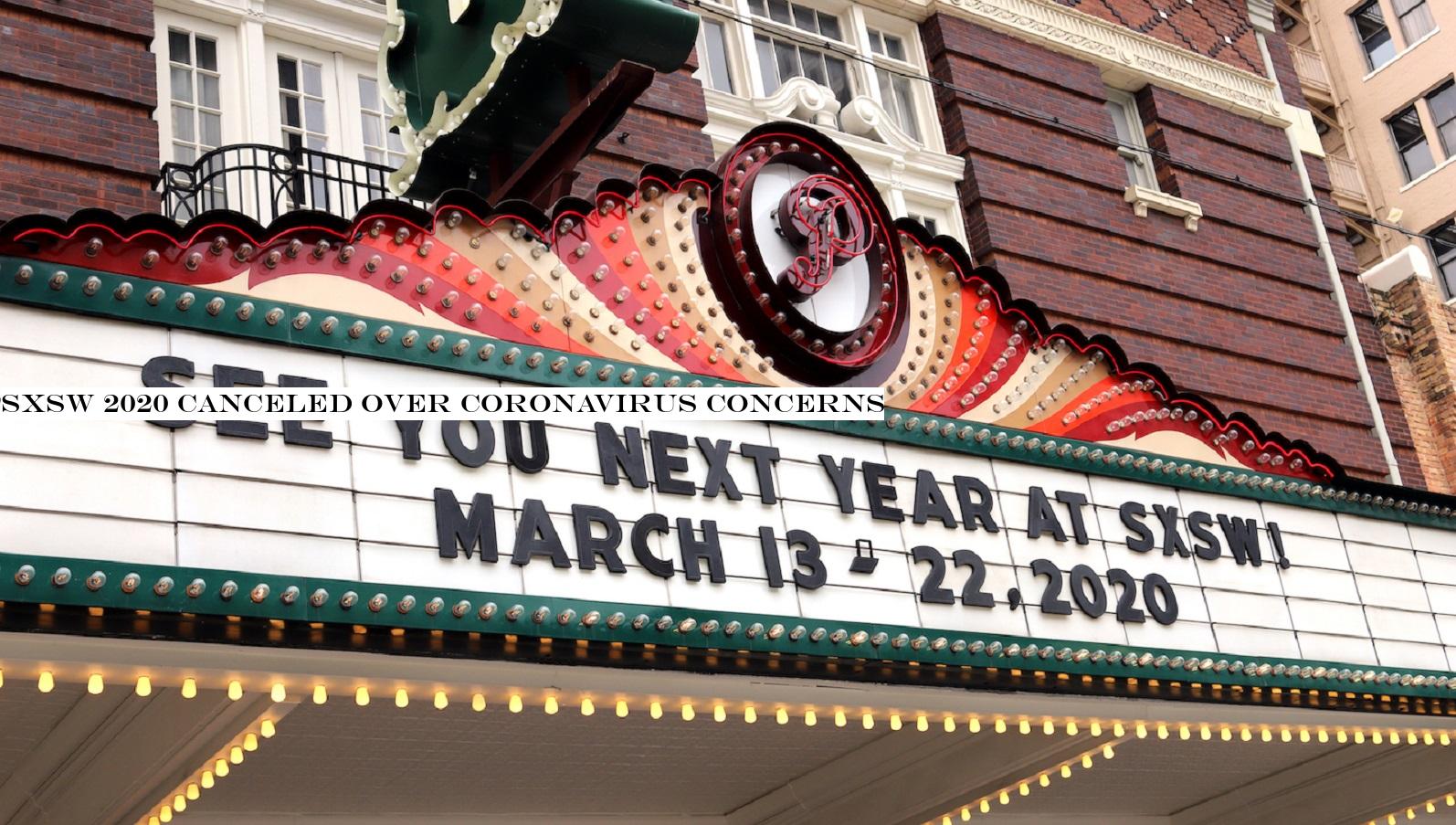Music
Trailers
DailyVideos
India
Pakistan
Afghanistan
Bangladesh
Srilanka
Nepal
Thailand
Iraq
Iran
Russia
Brazil
StockMarket
Business
CryptoCurrency
Technology
Startup
Trending Videos
Coupons
Football
Search
Download App in Playstore
Download App
Best Collections
Technology
Postmates announced today it would be adding a &non-contact delivery option,& for those concerned about COVID-19 exposure from workers bringing them food. Instacart set up something similar earlier this week, announcing sales were 10x higher this week over last due to coronavirus concerns and rolling out the &leave it at my door& option for customers concerned about coronavirus.
This flu-like virus has already infected nearly 100,000 people worldwide, killing thousands, including one man so far in the Bay Area, the hub of Silicon Valley and the startup world.
Similar services starting offering this contactless option in China last month, where COVID-19 took a stronghold and started spreading from Wuhan. The majority of stores in the area had closed shop, leaving delivery as most peopleonly option. The contactless measure seemed aimed at keeping everyone safe and minimizing exposure.
While plenty of customers have praised this effort, not everyone is pleased, believing this move is just passing the buck to low-wage workers.
Postmates counters this argument, telling TechCrunch the move is beneficial to both customers and couriers. &Community health and safety is paramount at Postmates, and we have shared precautionary CDC guidance with our Postmates,& a Postmates spokesperson told TechCrunch. &Customers have an option to designate the drop-off of item without contact; and we&ll continue to encourage employees, merchants and consumers to follow preventative measures. While we are operating with business as usual, we are tracking the situation closely and will help provide the resources necessary to mitigate increased risks.&
Instacart mentioned similar sentiment, telling Techcrunch, &Our goal is to continue to work with and serve the entire Instacart community safely, while also ensuring our customers have access to uninterrupted delivery and pickup services for the groceries and household essentials they need.&
For those who like this option and want to use it, just order as normal on Postmates. You&ll then be prompted to select your delivery preference before checking out. The option is similar with your Instacart order.

While we&ve so far only heard this option is being offered by these two delivery startups, we&re likely going to see more contactless rollouts as coronavirus fears continue to change our shopping habits in the next couple of months.
- Details
- Category: Technology Today
Read more: Delivery startups set up contactless delivery options as coronavirus fears grow in U.S.
Write comment (91 Comments)SaaStr, the venture firm that puts on the largest conference for SaaS companies, postponed its SaaStr Annual 2020 conference today amid concerns from local and national officials around large gatherings in light of the COVID-19 virus. The event was scheduled to take place next week.
On March 5th, Santa Clara County issued updated guidelines that included, &[Minimizing] the number of employees working within armlength of one another, including minimizing or canceling large in-person meetings and conferences.&
Company founder Jason Lemkin said his team was prepared to go forward and had put stringent safeguards in place. &We put in place health and safety measures no one else in the industry equaled, but once the County made its statement, we needed to reschedule,& he told TechCrunch.
They outlined the health guidelines for the event in an article on the company website earlier this week, including not allowing anyone from a hot zone to attend, passport checks to enforce that, temperature checks and more. As Lemkin tweeted:
The event will now be folded into the companyfall conference, which they say will be even bigger now, while replacing the companyannual Scale conference. &Following that [guidance from Santa Clara County] and guidance from the CDC, and the growing escalation of the Covid-19 outbreak around the world and in the United States, SaaStr Annual must now be rescheduled and merged with our existing fall event into a new, less formal ‘SaaStr Bi-Annual& to take place in September 2020,& the company wrote in a statement.
Lemkin expressed frustration with authorities today on Twitter about the lack of leadership on this:
The event included some of the biggest names in SaaS, from Jennifer Tejada of PagerDuty and Aaron Levie of Box and many more. Itan event thatdesigned to help SaaS companies of all sizes discuss the issues facing them, in one place, with panels, interviews and sessions. Many other tech conferences are being cancelled as well, including SXSW.
- Details
- Category: Technology Today
Read more: SaaStr postpones annual conference as county officials discourage large gatherings
Write comment (92 Comments)
Tesla has received government approval to produce the long-range rear-wheel-drive version of its Model 3 vehicle at its Chinese factory, according to documents posted Friday on the Ministry of Industry and Information Technology website.
Reuters was the first to report the story.
Tesla started producing a standard-range-plus rear-whee-drive version of the Model 3 at its Shanghai factory late last year. The first deliveries began in early January. This approval allows Tesla to add another variant to its Chinese portfolio. Eventually, Tesla plans to manufacture the Model Y electric vehicle at the China factory.
The move is notable because Tesla discontinued production of the long-range RWD Model 3 in the U.S. and now only offers that variant as a dual-motor all-wheel drive. It also appears to be a shift from Teslainitial plan to sell a more basic version of the Model 3 in China.
Tesla struck a deal with the Chinese government in July 2018 to build a factory in Shanghai. It was a milestone for Tesla and CEO Elon Musk, who has long viewed China as a crucial market. And it was particularly notable because China agreed for this to be a wholly owned Tesla factory, not a traditional joint venture with the government. Foreign companies have historically had to form a 50-50 joint venture with a local partner to build a factory in China.
- Details
- Category: Technology Today
Read more: Tesla gets OK to produce long-range Model 3 at China factory
Write comment (98 Comments)Extra Crunch is now past its first birthday. Over the past year, we&ve learned a lot, made some changes and generally found our groove.
Toward the end of 2019, former TechCrunch writer Alex Wilhelm returned to the publication to help grow Extra Crunch, though he still writes for the main site as well. His daily columns dig into the financial side of the startup world and have resonated deeply with our audience, so I wanted to talk to him about what hedoing and why more people might want to read his work.
Normally, we&d run a Q-A like this on Extra Crunch, but we&ve removed the paywall so everyone can learn a bit about how we approach our work at TechCrunch so we can better serve our audience of founders, operators, tech fans and investors.
Read on for an unvarnished look at our process, from two of our own. Cheers!

Senior Editor Alex Wilhelm
Chatting with Alex
Walter Thompson: I&d like to introduce you to readers. What is your daily column about?
Alex Wilhelm: I&m always trying to figure out whatgoing on and why. And I think that one thing that the news media does traditionally quite well, is to present everyone with a set of facts.
But one thing that the news has always been hesitant to do is tell people why they might care or why things are happening, because they don&t want to lose their journalistic status. I don&t share that perspective. And so my morning column is essentially me thinking out loud about markets, trends and news events that I&m trying to piece together into themes and narratives to help explain the world around me on topics that I find interesting. Itreally just a process of thinking out loud, trying to learn, and put the LEGOs together to make something a bit larger than the parts themselves.
Who should be reading your daily column? Is it just for Silicon Valley insiders?
Itdesigned to help people who want to be more on the inside. I&m writing for the people in the world of technology, and the financial world that encompasses startups, to better understand where they work and how their jobs function inside the context of business.
If you work for a startup — you know, seed through late-stage — it probably is something that you might want to read, because you&ll better understand whodoing well, and business models, where money is going, how exits are happening, what your options might be worth and maybe we&ll talk about the company you work for. So if you&re in that area, I would read it, but if you&re not, itprobably wildly esoteric and not tailored for you.
Do you think your column could help someone become a better founder, or are you offering more specialized knowledge?
If founders wanted to understand more about the world around them, it is a useful read.
You can certainly build a company with blinders on and just run straight forward. And if everything goes well, you&ll look like a genius. But if you did want to kind of maybe look around a bit more — I cover transportation, fintech and venture trends, and you know, the Chinese market and stock market trades — I try to bring all this stuff in to explain whatgoing on. If you wanted a broader view, I hope that my column will help. If it doesn&t, I&m failing.
Any interest in using what you&ve learned writing about startups to found your own company?
I worked for a bunch of startups. I worked for a startup in Chicago during college. Then I also worked for a startup in Portland and I founded a company with some friends called Contenture. TechCrunch covered us back in the day when I was in college, and the dissolution of that startup got me into writing. So I guess I rephrase your question, &am I willing to go back into building companies?& And the answer is no.
I love what I do. And I&m very, very lucky to get to do it. And this is the job that I want. So at least today, no. Maybe down the road as my perspectives, you know, change maybe, but I love writing. I get to write about stuff that I find fascinating.
Use discount code ALEXat checkout to save 25% off the price of an annual or two-year Extra Crunch subscription.
If you&re a founder wholooking at the novel coronavirus, a possible recession, real uncertainty in public markets and more VCs who are demanding profitability, is this a good time to launch a startup? Or is this a bad time? Or is it just as dodgy as it ever was?
Ita really good question. I&ve been talking with many people about this, in particular, Elizabeth Yin, who was breaking down the two-tiered founder world — how some people can raise infinite money and some people are kind of starving.
I think ita pretty good time to found a company because even if the fundraising market does change and become a bit more stiff and strict, it will be nothing compared to how bad it was in 2008. And nothing as bad as it was 2000 and 2001. So theregoing to be more capital and more risk tolerance. And sure, maybe you won&t be quite as fantastic, but it&ll still be good.
And that means that you have the fuel to build whatever it is that you think is going to change the world if ita good idea. I would get out there and go do it. &Good companies are born in bad times& as a theme isn&t wrong. They&re also founded in good times. But if you&ve got a really good idea and a solid team in mind, I don&t think the macro conditions should change the way you think about building a business.
Is there anything you wanted to add before we wrap up? We&re doing this interview for readers who aren&t already Extra Crunch subscribers. Why do you think they should sign up?
Extra Crunch is a grand experiment, and one thatbeen a real pleasure to get to be a small part of. I want to thank everyone whocome along for the ride so far. And if you haven&t yet, come over to try it.
TechCrunch as an organization is now doing three things at once. We&ve always done news and events. And now we&re doing something a little bit different at the same time. So thank you for everyone whotaking this up with us. And we&re going to earn everyone elsesupport and time as soon as we can.
- Details
- Category: Technology Today
Read more: ‘Thinking out loud’ with TechCrunch senior editor Alex Wilhelm
Write comment (90 Comments)
Chinese gaming giant Beijing Kunlun has agreed to sell popular gay dating app Grindr for about $608 million, ending a tumultuous four years under Chinese ownership.
Reuters reports that the Chinese company sold its 98% stake in Grindr to a U.S.-based company, San Vicente Acquisition Partners.
The app, originally developed in Los Angeles, raised national security concerns after it was acquired by Beijing Kunlun in 2016 for $93 million. That ownership was later scrutinized by a U.S. government national security panel, the Committee on Foreign Investment in the United States (CFIUS), which reportedly told the Beijing-based parent company that its ownership of Grindr constituted a national security threat.
CFIUS expressed concern that data from the appsome 27 million users could be used by the Chinese government. Last year, it was reported that while under Chinese ownership, Grindr allowed engineers in Beijing access to the personal data of millions of U.S. users, including their private messages and HIV status.
Beijing Kunlun had agreed to sell the unit by June.
Little is known about San Vicente Acquisition, but a person with knowledge of the deal said that the company is made up of a group of investors thatfully owned and controlled by Americans. Reuters said that one of those investors is James Lu, a former executive at Chinese search giant Baidu.
The deal is subject to shareholder approval and a review by CFIUS.
A spokesperson for Grindr declined to comment on the record.
- Details
- Category: Technology Today
Read more: Grindr sold by Chinese owner after US raised national security concerns
Write comment (90 Comments)

The media, culture, and tech showcase SXSW 2020 has been canceled due to coronavirus concerns, making it the latest major event this year to shut down rather than risk spreading infection.
The city of Austin pulled the plug on SXSW, according to a blog post on the event’s site, which clarifies who made the final call with some curious language:
“As
- Details
- Category: Technology Today
Read more: SXSW 2020 canceled over coronavirus concerns
Write comment (90 Comments)Page 1315 of 1444

 9
9






 (@romaindillet) March 6, 2020
(@romaindillet) March 6, 2020 SaaStrAnnual.com
SaaStrAnnual.com